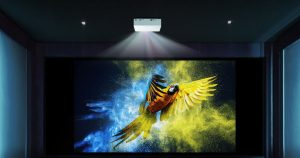Nearly three years since US intelligence agencies collectively stated that the Kremlin had hacked the Democratic National Committee, President Donald Trump still takes every opportunity to publicly downplay and dismiss the facts about Russia’s interference in the 2016 election. No surprise there. But what Trump revealed in his July 25 conversation with Ukrainian president Volodymyr Zelensky is far more remarkable: By all appearances, Trump still doesn’t believe those facts himself.
That half-hour call has already led to a whistle-blower complaint, an impeachment inquiry, and a congressional hearing. But it also sparked confusion over one strange stream-of-consciousness portion of Trump’s remarks. In the recently released recap of the call, Trump alludes to the investigation of the 2016 Democratic National Committee breach. “I would like you to find out what happened with this whole situation with Ukraine, they say CrowdStrike … I guess you have one of your wealthy people … The server, they say Ukraine has it. There are a lot of things that went on, the whole situation,” Trump says.
On its face, the comments suggest a fundamental misunderstanding of how cybersecurity investigations work, combined with muddled and broadly debunked conspiracy theories about Ukraine’s involvement in the DNC breach investigation. For starters, CrowdStrike is not a Ukrainian company. And there is no single, physical server that represents a piece of elusive missing evidence from the DNC breach. Instead, the DNC shared a forensically preserved digital image of its systems with the FBI, who concluded that Russian agents had indeed hacked the network.
The president’s line of inquiry makes no sense on multiple levels. It does, though, seem to reveal an amazing underlying fact: Trump is still searching for answers about what happened inside the DNC’s network, because he still doesn’t believe the one America’s intelligence agencies have told him.
The Zelensky conversation, after all, captures Trump in an apparent moment of private conversation, not a campaign rally or a Fox and Friends interview. Trump appears to sincerely live in a QAnon-style parallel universe, one where Zelensky can help him find facts that his own briefers have withheld.
It’s a striking revelation. More importantly, Trump’s disconnect with reality could have serious consequences for America’s ability to counter the actual Russian hackers who attacked the US democratic process in 2016, and who may do so again in 2020.
“The president does not seem to be receptive to facts and details that relate to what happened in 2016,” says Thomas Rid, a political scientist at Johns Hopkins University who focuses on cyberconflict and disinformation. “If we take him at face value, if we believe what he’s saying to Zelensky, the conclusion appears to be that he’s unable to distinguish between conspiracy theories and the intelligence briefings he receives that are backed up by hard evidence and forensics.”
Much of that evidence and forensic analysis, all confirming Russia’s culpability in the DNC hack, has been publicly available for years. The hackers known as Fancy Bear, now understood to be part of the Russian military intelligence agency, the GRU, made serious errors. They left Russian-language formatting-error messages in the stolen DNC documents they published. The metadata in those files showed they’d been handled on a computer whose username was “Felix Edmundovich;” the founder of the Soviet secret police, whose statue once stood in front of the KGB headquarters, was Feliks Edmundovich Dzerzhinsky. Later, links in the phishing emails that hackers used to target the DNC turned out to have been created with the same account for the URL-shortening service Bitly as links used to phish hundreds of other Russian hacking targets, from Ukrainian officials to Russia-focused academics.
And last year’s indictment of 12 GRU hackers, which emerged from the investigation of special counsel Robert Mueller, made clear just how much more US intelligence and law enforcement had dug up. The indictment laid out evidence against the Russian agents as detailed as the servers they’d used, the terms they’d typed into search engines, the addresses they’d worked from, and the names and faces of the exact hackers involved.
Trump has, of course, had access to all of that evidence, some of it for years. Even before his inauguration, then president-elect Trump on January 6, 2017, received a briefing from the heads of the NSA, FBI, CIA, and Office of the Director of National Intelligence that likely included damning evidence of the Kremlin’s election interference. Yet six months later, Trump said in a press conference in Poland that “nobody really knows for sure” if Russia meddled in the election. After a meeting with Russian president Vladimir Putin a few days later, he credulously stated that Putin had denied Russia’s involvement—a denial that Trump seemed to accept at face value. “He said he absolutely did not meddle in our election,” Trump said. “He did not do what they’re saying he did.”
That sort of obfuscation is by now expected from a president willing to tell the public whatever lies are most expedient. But when Trump candidly airs alternative theories in a one-on-one conversation with another world leader, it suggests that he actually believes those lies—that no classified intelligence, no matter how damning it may be, can compete in the arena of the president’s brain with falsehoods that might help him remove an asterisk from his election victory. As former NSA lawyer Susan Hennessey told WIRED after one of his pre-inauguration Russian hacking denials, “he doesn’t see the value in understanding anything that’s not politically useful to him.”
Since taking office, Trump has reportedly remained short-tempered with anyone on his staff who mentions Russian interference or even election security. That bubble has likely only solidified his sense of denial. “It’s depressingly plausible that nobody wants to bring this up in his presence,” says Julian Sanchez, an intelligence and surveillance-focused fellow at the Cato Institute. “He is so irritable about this topic or anything that would intimate that his victory was not a reflection of his magnificence, that it may well be the case that this hasn’t been explained to him, or if it has been, no one wants to do it twice, and he forgets what it’s convenient for him to forget.”
That denial, Sanchez points out, could have real consequences. White House staff may be hesitant to discuss preventing another round of Russian meddling in the 2020 election. Or far worse, they could divert intelligence resources from tracking Russian hackers to nonsensical missions like finding a missing DNC server supposedly in Ukraine—even as intelligence officials have publicly warned that Russia could strike again, potentially with an attack as aggressive as a data-destroying attacks on election systems. “Resources are finite,” says Sanchez. “In the worse case scenario it doesn’t seem beyond the realm of possibility that he’d issue a directive to stop wasting time and money monitoring Russia because ‘that was all a hoax.'”
For any intelligence official who reports to the president, Trump’s state of denial must pose a baffling challenge, according to Rid. “Imagine you’re part of the team that briefs the president every morning,” he says. “This was the most high-profile intelligence operation that ever targeted the US, and the president is unable to parse and process the facts and evidence about it. What does that mean for follow-on briefings? What does it mean to do your duty in this context?”



